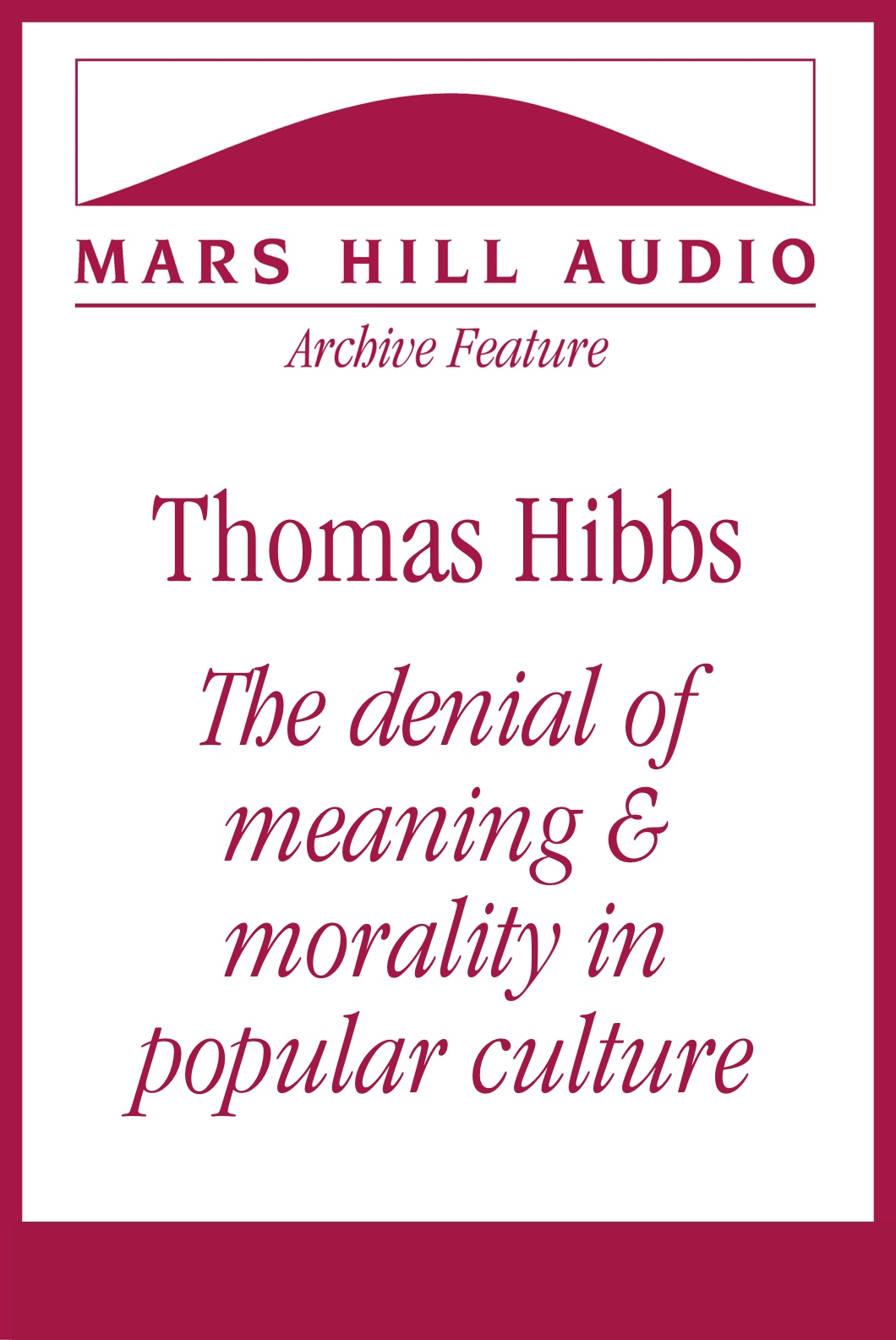originally published 7/1/2000
In this Archive Feature from Volume 44 (2000) of the Journal, philosopher and professor at Boston College Thomas Hibbs discusses the nihilism that runs through films and television shows in contemporary American popular culture. Hibbs, author of Shows about Nothing: Nihilism in Popular Culture (Spence Publishing, 1999), argues that a cultural narrative of hope, providence, and the American Dream has unraveled and is now being reversed in shows and films such as Seinfeld, The Simpsons, and Silence of the Lambs. In particular, each episode of Seinfeld seems to upend the American pursuit of happiness through traditional means (love, marriage, etc), instead allowing meaningless or trivial things to thwart each character’s pursuits. This common thread of destructive nihilism is evidence of a denial of meaning and morality in modern culture.
9 minutes
PREVIEW
The player for the full version of this Feature is only available to current members. If you have an active membership, log in here. If you’d like to become a member — with access to all our audio programs — sign up here.
Related reading and listening
- The moral complicity of movie audiences — Film critic David Thomson explains why Alfred Hitchcock’s film Psycho achieves a kind of unique synergy with American culture, raising unsettling questions about alienation and identity. (33 minutes)
- America as the Republic of Entertainment — Neal Gabler on the modern devotion to pleasure
- Mars Hill Audio Journal, Volume 163 — FEATURED GUESTS: Andrew Youngblood, R. J. Snell, Nicholas Denysenko, Nigel Biggar, Robert McNamara, and David Cayley
- An “austerely chastened” pneumatology — In this lecture, Ephraim Radner critiques modern pneumatology for effectually denying the “difficult givenness” of this life and implicitly subverting our human creatureliness. (40 minutes)
- Is American culture now story-less? — From our archives, Michael Kammen compares popular and mass culture, and Philip Fisher analyzes the idea that new cultural forms inevitably dissolve old ones. (26 minutes)
- Sports in America — FROM VOL. 21 Robert Higgs looks at the history of sports in American experience and at how organized religion has interacted with that history. (12 minutes)
- A fearful darkness in mind, heart, and spirit — Roberta Bayer draws on the work of George Parkin Grant (1918–1988) to argue that our “culture of death” must be countered with an understanding of reality based in love, redemptive suffering, and a recognition of limitations to individual control. (33 minutes)
- The sacramental vision of G. K. Chesterton — FROM VOL. 112Ralph C. Wood describes G. K. Chesterton’s imagination as especially fruitful in conveying grace and edification to his readers. (19 minutes)
- Don’t feel bad — James Twitchell discusses a few of the themes in his book about the confusing state of the evolution of shame and shamelessness. (20 minutes)
- Mars Hill Audio Journal, Volume 141 — FEATURED GUESTS:
Grant Wythoff, Susanna Lee, Gerald R. McDermott, Carlos Eire, Kelly Kapic, and James Matthew Wilson
- Make it louder, do it faster — Michael Hanby on the nihilism that drives the quest for spectacle
- Fujimura, Hibbs, & Siedell: Abstraction, immanence, & the cultural landscape — Artist, philosopher, and art historian discuss the tension between self-expression, transcendence, and the material world.
- Radical faith in the nothing — David Bentley Hart on the nihilism of worshiping mere choice
- Mars Hill Audio Journal, Volume 106 — FEATURED GUESTS: Adam Briggle, John C. Médaille, Christopher Page, Christian Smith, Herman Daly, and Thomas Hibbs
- Mars Hill Audio Journal, Volume 102 — FEATURED GUESTS: Daniel M. Bell, Jr., Lew Daly, Adam K. Webb, Stratford Caldecott, James Matthew Wilson, and Thomas Hibbs
- Mars Hill Audio Journal, Volume 89 — FEATURED GUESTS: Jerome Wakefield, Christopher Lane, Dan Blazer, Fred Turner, Barrett Fisher, and Thomas Hibbs
- The Necessity of Tradition — “If a society wishes to find a way of ensuring that newly emergent and valuable techniques are passed on and preserved, its members must feel themselves under an ethical obligation to leave the best possible world not only for their children, but also for their grandchildren.”
